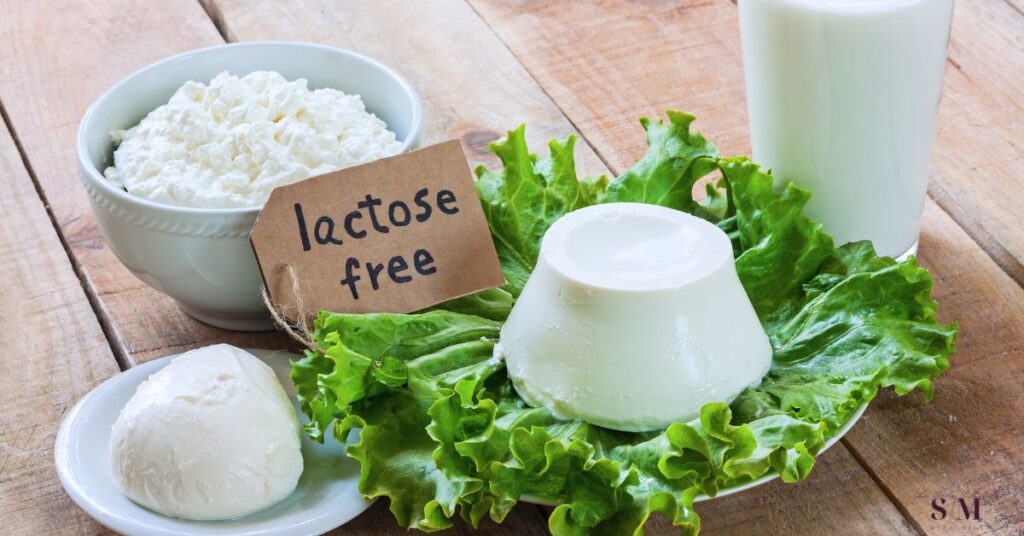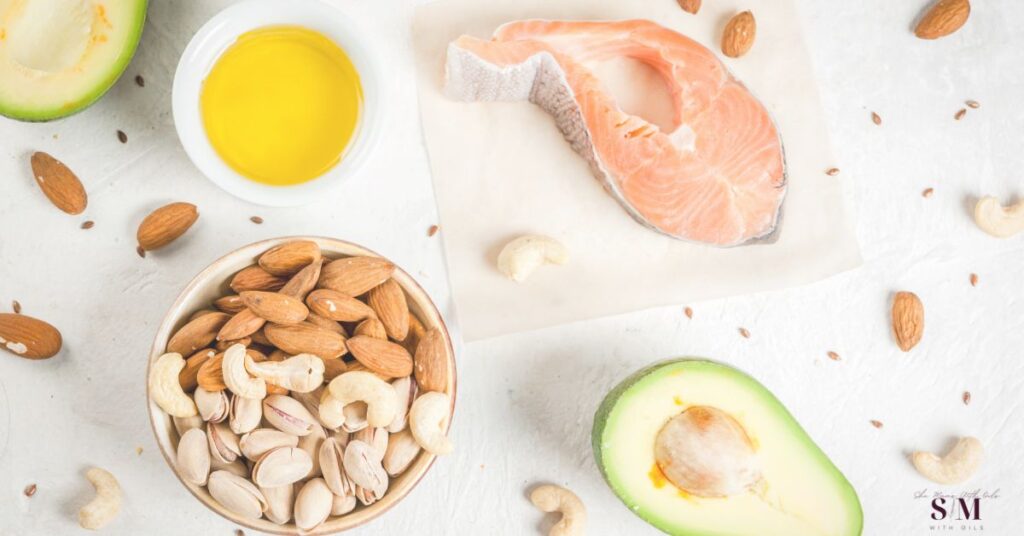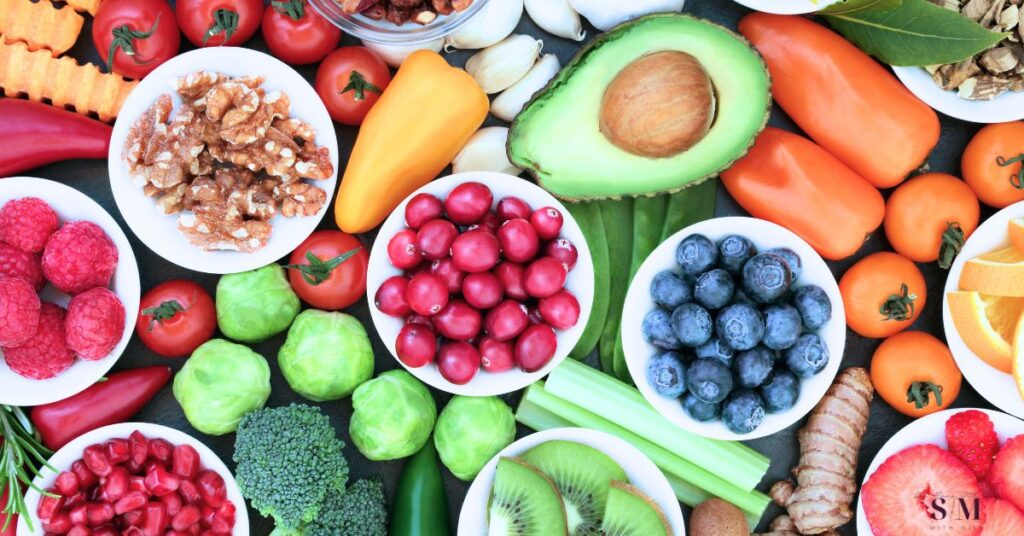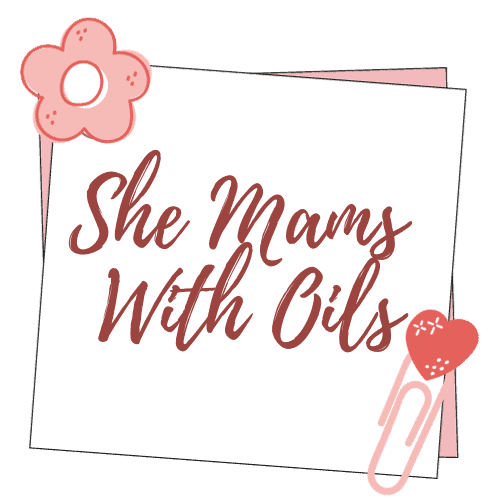CAN FOOD INTOLERANCES AND ALLERGIES CAUSE ACNE?
Can food intolerances and allergies cause acne? Find out in this comprehensive article.
In this post, I’m going to focus on the possible links between acne flare-ups and food sensitivities, intolerances or allergies.
I’ll provide you with a list of possible trigger foods, and also with some safer, healthier alternatives.
Read the post till the end for all the info!

The following post may contain affiliate links, which means I’ll get a small commission if you decide to buy using the links provided. This will add NO EXTRA COST to you but it helps me to keep this blog up and running. Thank you. You can get more info by reading my Disclaimer page.
Hello dear friend!
Today we are going to focus once more on ways to help you if you are suffering from those annoying acne breakouts!
As I’ve mentioned before, I for one have suffered a lot from acne when I was younger, and sadly I’m left with scars on my face.
Thankfully, I’ve learned a few strategies (as well as some make up tricks!) during the years, and I’m happy to share them with you today.
Can food intolerances and allergies cause acne?
In this post, I’m going to focus on the possible links between acne breakouts and food intolerances or allergies.
I’m going to talk about what are the foods that are possibly linked to acne breakouts, and I’m going to provide you with some healthy alternatives.
I hope you will find the article useful!
DIY ALL NATURAL SKIN CARE AND BEAUTY RECIPES
If you are looking for inspiration for some DIY beauty products with natural ingredients, make sure to check the following posts:
IMPORTANT
The content of this blog post is intended for information and educational purposes only. It is not intended to replace professional medical advice.
I am not a doctor and I’m only sharing my personal experience here.
If you are unwell or sick, always ask your trusted doctor or medical practitioner for advice. Pay particular attention if you are allergic or intolerant to any food and/or medication, if you are pregnant or breast-feeding. Children and elderly people should also seek medical attention quickly if unwell or experiencing any symptom.
Even if you don’t experience any symptom, always contact your trusted health provider if in doubt. If you feel unwell and are worried, it is safer to ask for medical advice from a professional than to wait.
Always keep essential oils out of reach of children.
Never risk it!
What is acne?
According to this website: ”Acne is a multifactorial disease in which genetic, hormonal, environmental and nutritional factors are involved”.
In other words, acne is a common condition that is not caused by one single factor, rather it is the result of several ones.
Can food intolerance cause skin problems?
Although acne is often associated with hormonal changes and genetic predisposition, it is possible that some foods could trigger breakouts.
However, more research is needed in order to prove a direct link between acne breakouts and food intolerances and/or allergies.
Indeed, from the same website: “Data on the role of food and other etiological forms of allergy in the development of acne, as well as the nature of the sensitization spectrum, are extremely scarce”.

Having said all of that, let’s have a look at what practical steps you can take today to improve the health and overall look of your skin, by making simple dietary adjustments.
Understanding Food Intolerances and Allergies
Before we look at the foods that could possibly trigger acne breakouts, let’s talk about what are food intolerances and allergies, as the two are completely different conditions.
Indeed, food intolerances are generally milder, while food allergies can be severe and sometimes life threatening.
What’s the difference between a food intolerance and a food allergy?
According to the Mayo Clinic website, “A food intolerance can cause some of the same signs and symptoms as a food allergy, so people often confuse the two.
A true food allergy affects the immune system. Even small amounts of the offending foods can trigger a range of symptoms, which can be severe or life-threatening. In contrast, a food intolerance often affects only the digestive system and causes less serious symptoms.”
Indeed, if you have a food intolerance, you can avoid any immune response and symptom by avoiding a particular food altogether, or by eating only small amounts of it.
If you experience an immune reaction or any symptom after eating a particular food, consult with your doctor to determine whether you have a food intolerance or a food allergy.
Remember that a food allergy can potentially be life threatening, so do not take risks!
Can inflammation lead to acne?
Although food intolerances and allergies are two distinct conditions, they can both lead to chronic inflammation in your body, and therefore to possible acne breakouts.
That is why it is important to establish if you have an intolerance or allergy to a specific food, so you can avoid it and improve the look and health of your skin!
For more info on inflammatory acne, you could read this article from the Cleveland Clinic website.
What foods can cause acne? What foods can trigger acne breakouts?
Although more research is needed to establish a proven link between food intolerances and acne, there are certain foods that are considered possible triggers.
Let’s have a look at them and at some of the alternatives.

Is dairy linked to acne? Does dairy cause hormonal acne?
Dairy is normally the first food group that comes to mind if you are dealing with acne.
In fact, dairy contains hormones that, when paired with our own, can lead to excess sebum production, and therefore to clogged pores.
In addition to that, dairy products may have a high glycemic index, which can increase insulin levels and contribute to inflammation.
Lastly, some dairy foods such as cheese, can also be high in dietary iodine, another acne triggering food.
Speaking from my personal experience, I find dairy very inflammatory, and my skin definitively gets worse if I consume it in large quantities.
Will cutting out dairy clear my acne? Will my acne go away if I stop eating dairy?
Cutting dairy would definitively be my first advice. Luckily for you, there are so many delicious plant based alternatives, so you will not feel as you are missing out on anything.
Plant based milks such as almond milk or cashew milk for example are a delicious and healthy alternative to dairy milk.
However, make sure to buy a fresh plant based milk, free from sugar and preservatives.
Does sugar cause acne breakouts?
According to the American Academy of Dermatology Association, “Scientists believe that following a low-glycemic diet may reduce acne because this diet eliminates spikes in your blood sugar. When your blood sugar spikes, it causes inflammation throughout your body. These spikes also cause your body to make more sebum, an oily substance in your skin. Both inflammation and excess sebum can lead to acne”.
An overconsumption of sugars can also lead to premature ageing.
Indeed, too much sugar can be a contributing factor to Advanced Glycation End products (AGEs).
What are “AGEs”?
AGEs, are harmful compounds that form when protein or fat combine with sugar in the bloodstream.
They can be found in foods that are cooked at very high temperatures (for example when you fry, grill or toast foods).
While low levels of AGEs are ok, cause your body can eliminate them, higher levels can cause inflammation.
If your body accumulates too many AGEs, you are at risk of developing diabetes, heart disease, kidney failure, and Alzheimer’s, as well as premature ageing.
People that over consume sugary foods, naturally have high blood sugar levels, and therefore are at a bigger risk of producing too many AGEs.
WHAT ARE HEALTHY ALTERNATIVES TO SUGAR?
Sugar is commonly used in almost any store bought food products you buy, to enhance their taste. That is particularly true of those “low calories” food that need extra flavouring after being stripped of their natural fats.
For example, sugar is added to soups, yoghurts, white bread, cereals, plant based milks, etc.
Therefore, it is very difficult to eliminate sugar altogether.
If possible, try to opt for low glycemic alternatives, such as whole grains, fresh fruits and vegetables, legumes, etc. Those foods have a slower impact on blood sugar, and therefore can help maintain healthy levels of it.
In addition to that, when it comes to adding sugar to your coffee or baked goods, a healthy alternative could be Stevia, a natural plant extract.
Stevia is widely available in any supermarkets and health stores.
Does gluten intolerance cause acne? Will my skin clear up if I stop eating gluten?
Gluten is oftentimes a culprit in acne breakouts.
A protein found in wheat, barley and rye, gluten can cause an inflammatory response in the people that are sensitive to it or have Celiac disease.
There are several reasons why gluten can trigger an inflammation in your body.
Firstly, gluten has an impact on “zonulin” levels in your body.
Zonulin is a protein that plays a crucial role in the regulation of intestinal permeability, and higher levels of it can lead to inflammation and “leaky gut syndrome” (a condition in which unwanted substances such as bacterias, waste products and undigested food particles “leak” through the intestines into the blood stream).
Secondly, food that contain gluten also contain Phytic acid, or phytate.
Phytic acid unfortunately, despite having some health benefits, can lower or prevent the absorption of important minerals, such as zinc, iron and calcium, necessary to overall health and skin health.
Lastly, food that contain gluten are often high in sugar levels.
Is cutting out gluten good for you?
Unless you suffer from Celiac disease or a known intolerance, I would not recommend cutting gluten out completely from your diet.
Indeed, eliminating it entirely may reduce your fibre intake from whole grains, or vitamins that you’d normally get from fortified foods.
There are several gluten free option available in any supermarket or health store, but they are generally very expensive, and, to be honest, not as tasty as regular bread or cakes!
If you suspect you have an intolerance or a sensitivity to gluten, please do go and visit your trusted medical practitioner, who will be able to advice you on a food intolerance test and a healthy diet.
Can processed foods cause skin problems and acne?
Processed food are certainly a convenience of modern times, and most of us rely on them from time to time, when life gets really busy.
Nothing wrong with that, as long as you do not consume processed foods on a regular basis. Indeed, those products not only lack any real nutritional value, but contain highly inflammatory compounds like artificial additives and colours, preservatives, trans fats, sugars and high amounts of salt.
Among other health issues, those additives can disrupt your hormone levels and cause inflammation, potentially leading to acne breakouts.
DO TOO MUCH OMEGA-6 FATTY ACIDS INCREASE ACNE?
Just like their good cousins Omega-3, Omega-6 are vital for your overall good health.
However, if you consume high amounts of them, they can lead to inflammation.
Sadly, many processed or fatty foods contain high level of Omega-6. The same can be said about many vegetable oils, such as canola oil, sunflower oil, grapeseed oil, palm oil, etc.
To reduce the amount of Omega-6 you consume, stick to healthier oils, such as olive oil, avocado oil or coconut oil.
In addition to that, up the amounts of Omega-3 you ingest. Try to eat fish like salmon, mackerel and tuna, and also flaxseeds and chia seeds.

CAN CHOCOLATE CAUSE ACNE?
No need to panic just yet!
Thankfully my friend, there is no scientific evidence that chocolate itself can cause or increase acne breakouts!
And thank God for that!
However, it must be said that chocolate is a very common food allergen, and some individuals can develop acne or other types or reactions when they consume it.
In addition to that, chocolatey snacks are often loaded with food preservatives, flavourings and artificial colourings, palm oil, dairy, and of course high amounts of sugars: all known acne triggers!
In order to avoid those awful ingredients, enjoy a high quality, dark piece of chocolate instead. The higher the percentage of cocoa, the better for you!
is salt good for acne? Does salt clog pores?
Salt in itself is not bad for your skin or your health in general.
Indeed, iodised salt (a type of table salt that has been fortified with iodine), is vital for thyroid health.
The issue is that we often do not realise that many processed foods, as well as natural ones like seafood and dairy products, are high in iodine, so we consume too much of it.
Our body detox from excessive amounts of iodine through our skin. This can lead to a condition called “iododerma”, that manifests as inflamed, acne-like skin.
how to reduce salt in your diet
Although it might sound impossible to completely avoid processed foods, the key here is to reduce salt intake, rather than cut it out entirely.
Just like I mentioned earlier, try to reduce the amount of processed foods you consume.
Learn how to read labels, and when purchasing tinned and canned food, opt for low or no added salt, if and when possible.
As well as that, use natural salt when cooking. Sea salt, Himalayan pink salt, and Celtic salt are harvested from natural sources, and contain minerals such as calcium, potassium and magnesium that are vital for body health.
can caffeine cause acne?
Are you just sitting there, wondering “does coffee give you acne?”.
Well, my dear friend, let me tell you: I do love my morning fresh cup of coffee, and I’m drinking one as I write early in the day.
However, I try to stick to only one (or two max) cup of coffee in the day, as I know that too much caffeine intake can have detrimental effects on my body and overall health.
In particular, when it comes to skin health, high levels of caffeine can lead to dehydration and hormonal imbalance, both known factors in increase of acne breakouts.
I personally have no intentions of eliminating my morning cup of freshly brewed coffee, as it is one of the few joys of life!
However, if you are interested in that, you could consider swapping coffee for green tea, which can boost your energy when you need a little help, with just half the caffeine intake!
can alcohol cause acne?
I do not consume any form of alcohol at all as it is not something I enjoy. Anyway, a glass of wine every now and then may actually be good for you.
On the other hand, excessive consumption of alcohol is really bad for you!
Indeed, too much alcohol can cause:
- Inflammation;
- Intoxication;
- Dehydration;
- Premature Ageing;
- Damage to your immune system;
- Liver damage;
- Diabetes;
- Hormonal imbalance;
- Etc.
Please, always consume alcohol in moderation. If you suspect you may have an addiction to it, or if it’s affecting your daily life and relationships in any way, do reach out to a trusted medical professional. Help is available and you should not be afraid or ashamed to ask for it.
What foods to avoid to get clear skin?
Aside from the main foods I’ve mentioned so far, there are other ones that potentially can worsen your skin condition and increase acne breakouts.
The key element to remember is that every person is different, and what can be trigger to one individual, might not be to another.
In any case, other foods that can potentially cause acne breakouts are:
- Eggs;
- Soy based products (soy milk and yoghurt, tofu, tempeh, soy sauce, etc.);
- Corn;
- Protein powders and bars, especially the ones that contain whey protein;
- Etc.
Always consult with a medical practitioner or nutritionist if you suspect you have an intolerance, sensitivity or allergy to any food!
How to identify what foods are the trigger for acne breakouts?
Understanding what foods are actually triggering acne in your specific case may be a difficult task.
That is because, in our modern diet we consume so many different foods that potentially can be the cause.
Although dairy and gluten are generally the usual suspects, that might not be the case for you.
In my opinion the best course of action is to follow what is known as an “elimination diet”.
In other words, you will need to eliminate all acne triggering foods from your diet for a period of at least 4 weeks, before reintroducing them one at the time.
This approach will give your body time to detox first, and it will give you a clear indication of which specific food (or foods) is causing a bad reaction in your system.
Another helpful tool could be to keep a food diary.
Before you start eliminating foods from your diet, you might consider using a journal to document what you eat on a daily basis. You might be able to see patterns emerging, a correlation between symptoms and specific foods you consumed in the last 24-48 hours.
Can food intolerances cause sudden acne breakouts?
While that is certainly possible, as all individuals are different, generally speaking you will see an onset of symptoms after a minimum of 24 to 48 hours after consuming triggering foods.
That is why a food diary can be a helpful tool when you are trying to identify what causes acne in your situation (in case you, like me, can’t even remember what you had for breakfast some days!).
How can I identify if my acne is linked to food intolerances or allergies?
Aside from keeping a food journal, the best and most reliable way to identify if your acne is linked to the food you consume, is to do a food sensitivity test.
A Naturopathic Doctor or Registered Dietitian Nutritionist can help you with that.
Home tests are also available, but might not be as reliable and accurate as the ones carried out by professionals.
What happens when you stop eating foods you’re intolerant to? Is it possible for acne to clear up by avoiding trigger food?
If your acne is exacerbated by some triggering foods, then yes, of course, your skin will improve if you stop eating them.
However, more often than not, acne is the result of several contributing factors, and you should try to ask for medical advice in order to address and resolve them.

What food helps clear acne?
Although every person is different, you can improve the look and feel of your skin by eating a diet rich in antioxidants, such as fresh fruits and vegetables, and healthy fats.
It’s also very important to keep yourself hydrated throughout the day.
What foods help clear skin?
Let’s have a closer look at what foods you should be consuming if you want to support a clearer skin.
- Whole, unprocessed foods, such as whole grains and legumes;
- Fresh fruits and vegetables;
- Lean proteins;
- Foods rich in Omega-3, such as salmon and flaxseed.
Naturally, do not consume any food you are aware you are intolerant, sensitive or allergic to!
In addition to that, and even if more research is needed, you could try and consume:
- Probiotics, in order to promote gut health, and lower inflammation;
- Green Tea, to reduce inflammation and boost energy levels;
- Turmeric, which can help in regulate blood sugars;
- Food supplements, in case acne is caused by a deficiency in vital vitamins and minerals.
Always ask your doctor for advice before consuming any food supplement or probiotics.
Can food intolerances and allergies cause acne? Conclusions
Dear reader, I hope you have found this post helpful.
Acne is certainly one of those annoying and often embarrassing skin conditions, and I know that first hand, having suffered from it for many years in my youth.
Although there could be a link between food intolerances and allergies and acne, more research is needed to establish a definitive connection.
However, following a healthy and balanced diet can have a positive impact on your overall health and body, so it is certainly worth the effort!
By finding out what foods might be triggering an intolerance or a sensitivity, you will not only possibly clear your skin, but your whole health will improve.
A specialised doctor, nutritionist or medical professional, can help you identify trigger foods, and can provide advice on how to follow a diet just for your specific needs.
Till next time, Dee.
Hi, I’m Dee!
Mom of three; printables creator, natural solutions, simple living and homemade food enthusiast; “Outlander” fanatic.
When I’m not busy writing and designing, you can always find me covered in a cloud of flour in the kitchen, playing and crafting with my children, or making up some blends with my Essential Oils. Also I’m practically obsessed with Crystals and reading during my spare time.
Come along on our crazy journey as a family living in the countryside of Ireland!



